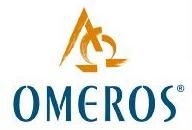预约演示
更新于:2025-05-07
COX-1 x COXs
更新于:2025-05-07
关联
59
项与 COX-1 x COXs 相关的药物作用机制 COX-1抑制剂 [+2] |
在研适应症 |
非在研适应症 |
最高研发阶段批准上市 |
首次获批国家/地区 西班牙 |
首次获批日期2015-12-20 |
作用机制 ADRA1激动剂 [+2] |
原研机构 |
最高研发阶段批准上市 |
首次获批国家/地区 美国 |
首次获批日期2014-05-30 |
2,392
项与 COX-1 x COXs 相关的临床试验NCT03590821
Modulating Celecoxib Induced Blood Pressure Changes by Timed Administration of Aspirin and the Human Chronobiome
To determine whether timed administration of aspirin ameliorates the effects of celecoxib on blood pressure.
开始日期2026-12-01 |
申办/合作机构 |
NCT03176498
The Effects of Human Umbilical Cord Mesenchymal Stem Cell Therapy on Neurological Function for Cerebral Infarction Patients in Convalescent Period.
This is a randomized, double-blind study. Human umbilical cord mesenchymal stem cells (hUC-MSC) will be treated on cerebral infarction patients, and evaluates their neurological function of convalescent period.
开始日期2025-12-31 |
申办/合作机构 |
100 项与 COX-1 x COXs 相关的临床结果
登录后查看更多信息
100 项与 COX-1 x COXs 相关的转化医学
登录后查看更多信息
0 项与 COX-1 x COXs 相关的专利(医药)
登录后查看更多信息
12,110
项与 COX-1 x COXs 相关的文献(医药)2025-12-31·Plant Signaling & Behavior
Protein targeting to Starch 2 and the plastidial phosphorylase 1 revealed protein–protein interactions with photosynthesis proteins in yeast two-hybrid screenings
Article
作者: Fettke, Joerg ; Muntaha, Sidratul Nur
2025-12-01·Histochemistry and Cell Biology
Replicative senescence in amniotic fluid-derived mesenchymal stem cells and its impact on their immunomodulatory properties
Article
作者: Javid, Amane ; Javazm, Reza Rafiei ; Abessi, Panteha ; Zare, Elham ; Azad, Faezeh Sadat ; Hoseini, Seyed Mehdi ; Hosseini, Elham Sadat ; Montazeri, Fateme
2025-12-01·Molecular Biology Reports
Molecular data reveal diversity of Tylodelphys spp. (Trematoda: Diplostomidae) in India: with evidence of new lineages, morphology and statistical analysis
Article
作者: Kumar, Sourabh ; Sharma, Bindu ; Singh, Bhupendra ; Chaudhary, Anshu ; Chiary, Haren Ram ; Singh, Komal ; Nayal, Amit Singh ; Chaudhary, Ashu ; Singh, Hridaya Shanker
60
项与 COX-1 x COXs 相关的新闻(医药)2025-05-04
·智药邦
2025年4月28日,Journal of Medicinal Chemistry上发布文章Artificial Intelligence in Natural Product Drug Discovery: Current Applications and Future Perspectives。该文章的核心内容聚焦于人工智能在天然产物(Natural Products, NPs)药物发现中的应用、进展和未来展望。详细探讨了AI技术如何通过机器学习(ML)和深度学习(DL)等方法加速天然产物药物的发现过程,并分析了当前面临的挑战和未来的发展方向。药物研发和过程是一项耗时、复杂、成本高昂且风险较高的工作,其临床成功率大约仅为12%。为了简化这一流程并降低相关成本,各种创新方法应运而生,其中计算机辅助药物设计(CADD)在过去三十年中已成为设计小分子药物的有力工具,其成功率高于传统的高通量筛选(HTS)方法。近年来,人工智能(AI)的进展显著增强了CADD的能力,尤其是在数据处理、生成能力、药物再利用效率以及识别复杂数据模式和人类难以察觉的联系方面。AI与统计分析的结合,即化学信息学研究,已在药物发现中取得了令人鼓舞的成果。大量文献阐述了AI算法在多个领域的应用和方法,例如新药设计(de novo drug design)、药物再利用、ADMET(吸收、分布、代谢、排泄和毒性)预测、分子性质预测、合成规划以及临床试验受试者招募等。然而,在药物发现的背景下,关于AI在天然产物(NP)化学领域的应用研究仍然显著缺乏。尽管AI研究主要集中在合成小分子上,但将AI的潜力应用于NP化学以促进科学进步和发现新成果是至关重要的。在药物发现的背景下,天然产物(NPs)是指由生物体(包括植物、动物和微生物)产生的化学化合物或物质。尽管NPs具有巨大的潜力,但从中发现药物的过程仍面临诸多挑战。如图1所示,这一过程从提取和分离初级和次级代谢产物开始,采用生物测定导向分离和色谱法等技术。这些化合物的结构阐明通常涉及先进的光谱学方法,包括核磁共振(NMR)、质谱(MS)和X射线晶体学。然而,这些程序可能非常耗时,例如从太平洋紫杉树中开发抗癌药物紫杉醇的过程就花费了30年时间。NP药物发现的关键挑战包括生物活性分子的有限可用性、分子结构的复杂性以及有前景化合物的低产量。去重复化(Dereplication)即识别已知化合物的过程,有助于减少冗余,但也突显了发现新实体的困难。此外,NPs通常表现出低溶解性、不稳定性或毒性等特性,这些特性使得它们在临床应用中更加复杂。NPs与多个蛋白靶点的复杂相互作用既为多靶点治疗提供了机会,也带来了与非靶点效应相关的风险。技术进步,特别是AI驱动的进步,正在改变NP药物发现的格局。AI使得化合物筛选更快、分子性质预测更准确,并支持从NP启发的药物的创新设计。机器学习(ML)技术和先进的计算工具赋予研究人员克服传统障碍的能力,更高效地探索NP资源。持续的AI整合有望充分挖掘天然产物的治疗潜力,促进复杂疾病创新疗法的发展。尽管存在挑战,但NPs由于其多样的化学结构和生物活性,一直是新药和治疗药物的丰富来源。随着分析和分离技术的进步,科学家们已从天然来源中鉴定出特定的生物活性分子。随后通过对这些化合物进行湿法实验室修饰合成类似物和模拟物,开发出了高效的药物。NPs还在治疗难治性疾病方面表现出疗效。例如,用于治疗多发性硬化症的芬戈莫德(图2)源自于Isaria sinclairii的次级代谢产物。重新激发使用NPs作为药物发现灵感来源的兴趣,为推进医疗保健提供了独特的机会。值得注意的是,在1981年至2006年期间,约50%的FDA批准的药物是NPs或其合成衍生物。海洋NPs特别有希望成为抗癌和抗病毒药物,许多已获许可的药物就是从它们中衍生而来的。此外,某些类型的食用藻类已作为潜在的抗肥胖物质来源而出现。然而,尽管它们对制药探索具有吸引力,但由于对可获得性(生态可持续性)、合成成本和时间(经济可持续性)以及其分子作用机制往往不明确(科学可持续性)的担忧,NPs作为药物在药物化学界的支持度有所下降。此外,该领域还面临独特的障碍,这些将在本文后面详细讨论。AI驱动的信息处理技术与复杂的指标相结合,在现代研究中发挥着关键作用,有助于发现有前景的生物活性分子,并为目标化合物组提供全面的见解。NP化学中使用AI算法的研究激增标志着研究方法的范式转变,使得有效检测化合物、系统地将NPs分类到不同的化学和治疗类别以及加速化合物提取等应用成为可能。这一观点深入探究了AI对NP药物开发的变革性影响,强调了先进的方法学,如创新药物设计和药物再利用。文章批判性地分析了数据基础在充分发挥AI潜力中的关键作用,强调了在去重复化(dereplication)技术和光谱分析方面取得的重要进展。通过提供AI原理的基本理解,强调了稳健的数据架构对于无缝集成到复杂的天然产物药物发现领域的必要性。讨论聚焦于天然产物衍生药物发现的独特挑战和进展,提供了前瞻性且全面的分析。认识到导航非核心资源的复杂性,同时明确了实现从发现到发展转变的关键技术。这种视角有意识地避免深入到更广泛的分子表征技术和通用AI框架,因为这些主题已在其他地方被广泛地覆盖。相反,文章专注于AI在天然产物药物开发中的具体应用和挑战,除了直接相关的情况外,不涉及合成药物发现的例子。本质上,本研究旨在吸引对AI在天然产物药物发现中作用有浓厚兴趣的研究人员,并对促进从发现到发展的关键技术提供独特的见解,同时强调这一动态领域的持续进展和持续挑战。图2展示了一些从天然来源获得的已知药物分子的结构。AI:开创药物发现的新纪元人工智能(AI)、机器学习(ML)和深度学习(DL)是计算机科学中相互关联的概念,它们在推动药物发现方面发挥着关键作用。AI专注于通过机器(尤其是计算机系统)模仿人类的认知过程,包括学习、推理、解决问题、感知、语言理解以及决策制定。其目标是创建能够感知环境并采取行动以实现特定目标的智能实体。AI的应用范围广泛,从自然语言处理(例如使用大型语言模型,如ChatGPT)到计算机视觉、机器人技术和自动化系统。在药物发现中,AI显著增强了活性预测、结构-活性关系(SAR)研究和分子设计的能力。例如,AI驱动的分类任务涉及根据药物候选性或毒性等属性对分子进行分类,这直接影响活性预测,能够快速识别具有理想特性的化合物。回归任务则预测连续值,如药物效力或与特定蛋白的结合亲和力,这对于细化SAR研究中的预测和优化分子设计至关重要。ML是AI的一个子集,专注于开发能够使计算机从数据中学习并进行预测或决策的算法和统计模型。ML算法通过学习提升系统性能,而无需明确编程。ML的技术包括监督学习(从标记数据中学习)、无监督学习(识别未标记数据中的模式)、半监督学习(从少量标记数据和大量未标记数据中学习)以及强化学习(基于奖励或惩罚的试错学习)。图3a提供了应用于药物发现的AI/ML技术的概述,突出了支持向量机(SVM)、神经网络和决策树等特定算法及其在筛选过程不同阶段的用途。这些方法使研究人员能够构建预测模型,识别分子结构与生物活性之间的关系,这是SAR分析的基础。DL是ML的一个子领域,专注于训练具有多层(深度神经网络)的人工神经网络,以理解复杂的数据表示。受人类大脑神经元结构和功能的启发,DL在图像和语音识别、自动驾驶等领域表现出色。在药物发现中,DL自动识别复杂模式和特征的能力使其在分子设计中具有不可替代的价值。例如,卷积神经网络(CNNs)在分析用于SAR研究的分子结构和虚拟筛选(VS)过程中特别有效,而循环神经网络(RNNs)则处理新分子设计中的序列到序列学习。此外,强化学习(RL)算法通过迭代学习和反馈循环优化药物发现中的决策制定,通过完善分子合成路径和化合物设计策略,直接促进了药物创制。生成对抗网络(GANs)是一种生成性AI模型,通过从现有化学数据中学习来生成新化合物,而自编码器则有助于分子表示学习,两者对于分子设计和SAR研究都至关重要。自然语言处理(NLP)和计算机视觉作为AI的重要组成部分,在天然产物药物发现中也展现出巨大潜力。NLP算法能够分析科学文献、专利和天然产物相关数据库中的大量文本数据,提取化学结构、生物活性、合成路线和分子相互作用等关键信息。这些信息被输入到ML模型中,用于预测分析、虚拟筛选和SAR研究,帮助研究人员更好地理解分子结构如何影响生物活性。此外,基于NLP的聊天机器人(如基于大型语言模型的OpenAI的ChatGPT)和知识管理系统可以协助研究人员访问和检索相关数据,解答问题,并导航复杂的数据集,从而提高药物发现计划中的生产力和决策的科学性。例如,InsilicoGPT(https://papers.insilicogpt.com)是一个即时问答工具,它将回答与特定研究论文中的段落和参考文献联系起来,方便用户与论文及其他相关论文进行互动。据该网站信息,该工具于2023年6月首次发布,当时ChatGPT尚未具备此类功能。AI中的计算机视觉技术可以通过分析来自各种天然来源的视觉数据来补充NLP的能力。例如,算法可以分析植物、海洋生物和微生物培养的图像和视频,识别独特特征,检测生物活性成分,并评估生长趋势和环境因素。这种视觉分析为研究人员提供了关于自然多样性的关键见解,有助于样本收集策略,并通过表型筛选方法支持药物发现,这些方法与活性预测直接相关。此外,将计算机视觉与光谱学方法(如质谱和色谱法)相结合,可以分析天然产物的化学轮廓和光谱,简化生物活性化合物的鉴定和表征过程。结合基于NLP的数据挖掘和基于计算机视觉的图像分析,研究人员能够加速从广泛的天然来源中发现新药,最终有助于更高效的活性预测、SAR分析和分子设计过程。天然产物药物发现领域在数据库的组织、完整性和可访问性方面面临重大挑战。尽管存在像PubChem和ChEMBL这样的大型数据库,但它们的数据往往缺乏针对天然产物-特异性的全面文档,例如提取物和组分的生物测定信息。许多天然产物数据库对学术用户不可用,或者不允许下载完整数据集,这为AI模型的训练设置了障碍。此外,科学出版物通常是数据共享的主要方式,但这些数据通常以非机器可读格式发布,使得自动化数据提取变得复杂。在整理天然产物数据时的关键问题包括将图像转换为结构、解决命名冲突以及提取实验元数据。标准化的数据收集实践,例如使用一致的培养基,对于改善数据的可比性至关重要。像NCI60肿瘤细胞系用于抗癌药物筛选和社区驱动的CO-ADD方法等努力旨在生成标准化的数据集,但已发表的阴性结果的缺乏仍然引入了偏差。NP Atlas、COCONUT、LOTUS和MIBiG等数据库已成为化学结构和生物合成基因簇(BGCs)的不可或缺的资源,支持ML应用。图3b展示了将ML整合到工作流程中的示例,从识别微生物组数据集中的疾病相关BGCs到临床试验候选药物的实验验证和开发。同样,像GNPS和NP-MRD这样的光谱数据库增强了对质谱和NMR数据的可访问性。海洋特异性数据库也为药物发现工作做出了贡献。然而,要充分发挥AI在天然产物药物发现中的潜力,需要将研究数据数字化为开放、结构化的格式。为此,数据库必须采用标准化格式,包含注释的化学结构,并提供完整的元数据。这样的进步将使数据在研究中的整合和利用更加高效,从而在天然产物药物发现中取得重大进展。人工智能在天然产物药物发现中的应用在当前的药物发现和开发格局中,人工智能(AI)的融入从根本上改变了天然产物(NPs)的利用方式。AI算法能够快速高效地从复杂混合物中识别、分类和去重复化化合物,极大地促进了对新型生物活性分子的探索。此外,这些算法在预测分离化合物的生物活性方面表现出色,使研究人员能够根据药理学特性优先考虑潜在的候选药物进行进一步研究。此外,AI驱动的分子对接和虚拟筛选技术在预测化合物与蛋白质之间的相互作用方面发挥了重要作用,从而加速了药物开发中潜在化合物的识别工作。图4概述了药物发现中使用的各种机器学习(ML)框架。每个模型利用不同的输入数据来实现与药物开发相关的特定预测。该图展示了如何使用多样化的ML方法来预测,如估计结合亲和力、对NPs进行分类、评估生物活性、预测多靶点特性以及识别生物合成基因簇(BGCs)等不同目标。这种可视化表示突出了ML技术在药物发现过程中不同目标中的适应性。此外,AI模型在预测合成路径方面发挥着关键作用,这对于天然产物的高效和可扩展生产至关重要。通过优化合成路线,AI有助于降低成本、提高可重复性,并促进新型天然产物及其衍生物的开发。此外,AI还助力于优化提取工艺、评估药代动力学、预测毒性以及整合生物数据。通过提供全面的工具包,AI推动了基于天然产物的药物发现和优化策略,促进了新型化合物的开发,并提高了药物开发的整体效率。1.AI在天然产物靶点预测和去伪中的应用由于天然产物(NPs)具有与生俱来的三维结构,与主要为“平面”结构的合成化合物形成鲜明对比,因此它们在发现活性化合物方面具有巨大潜力。这些天然来源的物质更有可能与转运系统有效相互作用,从而促进其递送至靶点。AI在天然产物研究中的一个重要作用是预测药物候选物的分子靶点、生物活性和潜在副作用。在这些领域的准确预测引导研究人员朝着药物开发最有希望的化学空间区域前进。这在基因组挖掘中尤为重要,因为大量的候选生物合成基因簇(BGCs)使得识别具有真正药物潜力的基因簇变得极具挑战性。AI与其他技术的结合可以帮助应对这种复杂性。有前景的NPs向可行的药物候选物的进展通常由于对它们的靶点了解有限而受到阻碍,这使得临床前测试和优化变得复杂。鉴于在大规模分离和研究代谢物方面的挑战,通过实验确定这些分子的作用机制成本高昂且劳动密集。基于分子结构高效预测最可能的靶点的计算模型是当前研究的热点。各种计算药物发现方法已被证明在识别NP靶点方面非常有效,包括对接、聚类、生物活性指纹、药效团和机器学习。有时,这为已经处于临床试验中的NPs带来了新的见解。尽管目前存在局限性,但这种方法的成功以及先进机器学习模型准确性的不断提高表明,该领域的进一步发展是可能的。这些进展将导致更定制化和增强的模型。NPs的具体结合位点通常是未知的,特别是因为生物活性NPs通常是通过基于可观察性状的测试发现的,缺乏对其蛋白质药物靶点的明确识别。在筛选技术的进步和实验室方法的创新下,“靶点垂钓”技术应运而生,旨在揭示NPs的潜在作用机制。计算上的进步,如机器学习模型和在线平台,在评估公共化学库中记录的NPs的治疗能力方面发挥了关键作用。这些工具被称为去伪预测器,利用监督或半监督机器学习算法,基于标记和未标记的特征进行训练,以预测NPs的蛋白质靶点。许多在线平台结合机器学习技术用于配体导向的靶点垂钓,主要依赖于化学相似性搜索。表1总结了用于这一任务的一些工具。市场上有许多用于靶点和活性预测的软件工具,范围从基于结构的(例如对接)到基于配体的方法(例如基于亚结构、药效团、形状的方法)。虽然没有一种方法是完美的,但每种方法都有其独特的优势。其中最成功且应用最广泛的是TIGER,它适用于NPs。TIGER算法基于配体的二维化学结构(化学构成)工作,不考虑靶点结构,使其适用于广泛的靶点和配体。大多数靶点预测工具,包括TIGER,是使用小分子参考数据开发的。它们的预测准确性通常在应用于较大NP结构(如大环或肽)时受到影响。为了部分缓解这一问题,可以将大的NP虚拟分解为较小的部分,并对得到的“药物大小”的片段进行靶点预测。除了为大型NPs提供直接的靶点和活性预测外,基于片段的预测有时还指出了最重要的功能传递亚结构部分(图5中的蓝色部分),这些部分可用于化学衍生化和指导优化。图5展示了使用TIGER识别新靶点的三个例子。对于小型NP白藜芦醇,预测并实验验证了其对雌激素受体β的拮抗作用。对于中等大小的抗癌多肽doliculide,软件识别出前列腺素E受体EP3的拮抗作用。对于聚酮类化合物archazolid A,已知其为V-ATPase抑制剂,软件识别出farnesoid X受体和其他先前未知的靶点。除了为大型NPs提供直接的靶点和活性预测外,基于片段的预测有时还指出了最重要的功能传递亚结构部分(图5中的蓝色部分),这些部分可用于化学衍生化和指导优化。2.AI在天然产物基因组和代谢组挖掘中的应用AI已被越来越多地用于从序列或光谱数据中预测生物合成基因和代谢物结构,显著加速了天然产物(NPs)的发现。基于规则的技术,如预测次级代谢组信息(PRISM)和antiSMASH,仍被广泛用于识别NPs中的生物合成基因簇(BGCs)。这些方法在发现未聚集的途径或新型BGCs方面表现出色,但在识别已知BGC类别方面存在不足。在这种更复杂的情况下,机器学习(ML)算法相较于基于规则的方法展现出显著优势。这一过程与图3b中描述的工作流程一致,其中ML在识别疾病相关的BGCs以及将其推进到验证和药物候选物开发方面发挥了关键作用。例如,基于深度学习(DL)或支持向量机(SVM)的方法,如ClusterFinder、DeepBGC、GECCO和SanntiS,以及针对核糖体合成和翻译后修饰肽(RiPPs)的基因组挖掘技术,已被用于识别传统基于规则的注释方法未能捕获的BGCs。这些方法通过序列特征(如基因家族、蛋白质结构域和氨基酸序列特征)进行训练,尽管其假阳性率高于基于规则的技术,且对已知BGCs形式存在假阴性,但它们已经在发现新型NP生物合成途径方面证明了自身的价值。例如,pristinin A3(图6)是通过decRiPPter算法发现的一种新型lanthipeptide类化合物,该算法旨在预测新的RiPP家族。此外,通过DeepRiPP及其基于DL的RiPP前体检测模块,还发现了RiPPs deepflavo和deepginsen,它们的前体肽编码位置与任何相关生物合成酶的距离较远。代谢组学能够直接鉴定生物合成产物,即使其确切结构未知,而基因组挖掘技术只能暗示生物合成潜力。然而,从质谱(MS)数据中推断分子框架和亚结构并非易事。因此,AI被用于解决MS基础代谢组挖掘中的常见问题,如保留时间预测、分子式注释、分子类别注释以及使用MS相似性度量进行库搜索和匹配。这些算法的实用性仍受到标记有代谢物片段离子化学结构的串联质谱(MS/MS)光谱数量有限的限制。然而,通过输入缺失数据,例如直接从代谢物结构估算化学指纹或模拟光谱,可以改进这些方法。同样,AI也在推动核磁共振(NMR)代谢组挖掘任务的发展,深度学习为NMR光谱重建、去噪、峰提取、偶合预测和光谱去卷积开辟了新路径。新的AI算法需要将基因组挖掘的BGCs和基因簇家族与非靶向代谢组挖掘的光谱和预测的分子类别联系起来。例如,最近的深度学习算法进展使得能够从NP化学结构预测生物合成途径成为可能,并为与BGCs的匹配奠定了基础。这些算法将在鉴定缺乏注释的BGCs和分子结构方面发挥关键作用,弥合基因组学和代谢组学之间注释的巨大差距。如图3b所示,这种AI驱动的工作流程展示了弥合基因组挖掘的BGCs与代谢组挖掘光谱之间差距的潜力,从而能够发现新的治疗化合物。3.AI在天然产物合成规划中的应用在自然世界中,许多分子结构复杂,通常包含多个环状结构和手性中心。例如,ciguatoxin CTX3C(图7)具有13个环和30个立体中心,其合成在2001年由日本的一个研究团队完成。而像维生素B12(图7)这样复杂的分子,其首次全合成在1972年完成,耗时12年,涉及超过90步反应,由100多名合作者共同完成。此前,合成规划软件主要针对较为简单的类药分子,采用分步合成的方法。然而,对于更大、更复杂的纳米颗粒,需要采取独特的策略。为了应对这一挑战,Chematica/Synthia合成规划程序的开发者引入了四种基于历史专家合成经验的启发式规则。这些规则使程序能够更好地模拟复杂合成所需的策略性思维,成功为具有挑战性的天然产物(如callyspongiolide,图7)生成可信且创新的合成路径。在过去五十年中,教会算法系统地设计多步有机合成一直是一个挑战。然而,随着软件开发的进步,例如逻辑和启发式应用于合成分析(LHASA),人类操作员可以在每个阶段对反应做出决策。如今,许多软件平台能够自主规划整个合成过程。然而,这些程序的功能是循序渐进的,目前仅限于人类化学家可以在没有计算机辅助的情况下快速设计的相对简单的目标。此外,这些算法尚未能够为复杂天然产物设计出可行的路径,因为这些分子需要广泛的多步规划,而仅依赖相关文献是不现实的。为了克服这一挑战,Barbara Mikulak-Klucznik及其同事展示了计算合成规划的潜力,前提是程序对有机化学的理解和数据驱动的AI能够通过因果关系进行深化。这种改进使程序能够跨多个合成步骤进行战略性规划。通过类似于图灵测试的测试,研究人员发现,由这种程序设计的路径与人类设计的路径几乎无法区分。此外,他们还在实际环境中成功验证了三种计算机生成的天然产物合成路径。这些发现共同表明,在专家水平上实现自动综合规划是可行的,这取决于不断增强的反应知识库和对代码的进一步优化。Chematica程序自主设计了engelheptanoxide C(图7)的合成路径,这是一种从黄杞中分离出来但从未被合成过的天然产物。计算机规划的路线在实验室中成功执行。2020年,Synthia被改进以设计复杂天然化合物的合成路线。经过验证,其路线更加精细且独特,与化学家设计的路线相当。研究人员选择了三种复杂的天然化合物,包括(-)-dauricine、(R,R,S)-tacamonidine和lamellodysidine A(图7),其中后两者之前未被完全合成。他们从Synthia的建议中选择了最佳合成路线,并在仅调整反应条件的情况下验证了16条路线,成功合成了(R,R,S)-tacamonidine和lamellodysidine A。尽管没有算法能够为复杂天然产物设计出可行的路线,因为需要高级的多步规划和不可靠的文献先例,但该研究表明,通过增强有机化学知识和AI程序,计算合成规划是可行的。通过类似于图灵测试的测试,合成专家发现,计算机设计的路线与人类设计的路线几乎无法区分。此外,三种计算机设计的天然产物合成路线在实验室中成功验证,表明实现专家级自动化合成规划是可行的,前提是进一步改进反应知识库和代码优化。另一种工具是ICSYNTH,它是一种基于从广泛化学研究中编译规则的软件。该工具协助用户识别可行的路径,类似于理解哪些道路畅通或拥堵。用户可以根据成本效率、速度或可靠性等偏好自定义路线。一项研究将ICSYNTH在建议新合成路线方面的表现与项目化学家的历史头脑风暴和文献数据进行了比较。研究结果表明,ICSYNTH显著提高了研发化学家的生产力,如在阿斯利康公司经常使用ICSYNTH设计AZD4635等化合物的路线(图7),这是一种腺苷A2A受体拮抗剂。另一项研究提出了一种新方法,将蒙特卡洛树搜索和符号AI相结合,以发现逆合成路径。利用在大量有机化学反应数据集上训练的扩展和过滤网络,结合蒙特卡洛树搜索,该系统表现优于传统技术,成功识别的分子数量几乎是传统技术的两倍,并且速度显著加快。在盲法评估中,化学家验证了计算机生成的路径与文献中的路径相当,突显了该方法的有效性。尽管在天然产物合成规划方面仍有许多工作要做,但目前的软件程序可能会成为化学家的有价值工具。尽管取得了进展,但计算机辅助合成尚未完全解决,很少有AI工具专门用于天然产物合成,并且缺乏足够的训练数据限制了深度学习方法的应用。天然产物的复杂性使得即使是专家化学家也难以处理,因为它们的行为不可预测,且需要密集的方法。尽管工业制药合成路线的平均步数为8.1步,但一些复杂目标可能需要超过100步。然而,更强大的算法最终可能会克服这些挑战。有关更多信息,读者可以参考文献。一些用于分子合成规划的基于AI的工具总结在表2中。4.AI在天然产物的分类、筛选和鉴定中的应用天然产物(NPs)在自然资源中含量丰富,但如何从复杂的混合物中检测到它们仍然是一个挑战。例如,在生物活性导向分离过程中,弱活性化合物的聚集往往会阻碍进展。为了应对这些挑战,将AI与现有知识相结合可以显著加速生物活性化合物的发现和应用。用于评估化合物生物活性的常用方法是虚拟筛选(VS),它可以分为基于结构和基于配体的研究。基于结构的研究侧重于分子与靶标蛋白的相互作用,依赖于结合模式来估算活性,但需要大量的计算资源和详细的蛋白质数据。相比之下,基于配体的研究根据化学结构的相似性来预测活性,假设新的活性化合物与已知化合物相似。由于生物活性与化合物结构之间的相关性,大量计算研究致力于活性评价。然而,在基于配体的方法中,选择合适的相似性度量和分子指纹仍然是一个挑战。定量构效关系(QSAR)研究使用数学模型将结构与活性相关联,预测具体的活性值或活性的存在。判别模型特别适用于预测具有不同结构的化合物的活性。与合成分子相比,天然产物具有独特的结构特征,包括多样的形状、复杂的环状系统、较高的氧含量以及较低的氮、硫和卤素含量,它们富含sp³杂化的碳原子、手性中心和氢键官能团。较小的天然产物往往表现出刚性,而较大的天然产物(如大环化合物)则提供了灵活性,从而增强了与蛋白质的结合和相互作用。这种结构优化归因于与蛋白质靶标的共同进化。用于聚焦化合物库的计算工具需要评分系统来评估天然产物的相似性。Ertl等人开发了天然产物相似性评分,基于天然产物特征结构片段评估相似性。通过与合成分子和DrugBank条目的比较验证了该评分,激发了天然产物相似性评分(NaPLeS)网络应用的开发。此外,扩展连通性指纹(ECFP)等方法也被用于衡量与天然产物的相似性。机器学习进一步完善了天然产物相似性评分,实现了对大型化合物库的类药性、类代谢物和类先导性的有效分析。除了经验规则外,机器学习还增强了分子组装(MA)指数等方法,该指数由Marshall等人引入,用于量化分子复杂性。该指数与质谱碎片复杂性高度相关,有可能作为设计天然产物启发药物的适应性函数。通过AI技术,天然产物的生物活性研究取得了显著进展,为药物发现提供了新的见解和方法。例如,AI促进了靶向PLK1(细胞增殖的中心蛋白)的共价结合天然产物的识别,展示了AI在预测分子相互作用方面的精确性。AI的作用还扩展到了应对当前的紧迫挑战,例如通过基于配体的机器学习和基于结构的对接研究SARS-CoV-2的潜在活性,展示了这些技术的适应性和相关性。进一步证明AI潜力的研究表明,对来自Delisea pulchra的furanones的3D构效关系(3D-SAR)的实验数据与计算药效团假设之间存在高度一致性,强化了AI生成模型的可靠性。除了针对特定靶标的定义外,AI技术还促进了更广泛的生物活性分析。通过聚类化学结构,可以评估天然产物的治疗潜力,整合结构和生物活性数据,为药物发现提供有力的见解。机器学习模型已被开发用于准确预测天然产物的靶标蛋白,利用广泛的数据库和预测框架提高准确性。例如,“STarFish”网络工具的创建展示了如何将这些模型应用于更广泛的科学研究。将来源生物体的基因组数据纳入其中,进一步丰富了生物活性预测。例如,机器学习已应用于从生物合成基因簇(BGCs)预测抗生素活性,展示了基因组信息和AI在药物发现中的动态整合。在抗肿瘤治疗领域,天然微管抑制剂如紫杉醇(图1)和伊沙匹隆(图8)已成为天然产物在药物发现中的关键成功案例。最近,深度学习模型识别出其他β-微管抑制剂,如eleutherobin、bruceine D和phorbol 12myristate 13-acetate(PMA)(图8),强调了深度学习在揭示基于天然产物基础的有效药物中的作用。然而,仍有改进空间。通过扩大训练数据集以包含更多样化的分子,并在更广泛的化学空间中预训练深度学习模型,可以解决冷启动问题并提高命中率识别。此外,采用生成模型而不是有定向消息传递神经网络(DMPNN)提供了创新机会,可以在已知的化学空间之外生成新的分子结构。最近的研究还专注于利用AI识别COVID-19的治疗方法。例如,对4924种非洲天然代谢物的分析鉴定了15个针对SARS-CoV-2解旋酶的有前途的化合物,其中化合物1552(图8)在对接和分子模拟中显示出强大的潜力。这些发现强调了将分子模拟与AI结合以解决紧迫的健康挑战的有效性。萜类化合物是一类多样化的天然产物,已通过数据科学方法进行了系统分析。研究人员应用随机森林(RF)、最近邻(k-NN)和多层感知器等机器学习算法,以高精度(F1分数>0.9)对萜类亚类进行分类,突出了它们在植物化学和生药学中的效用。另一项研究旨在识别天然产物抑制剂,针对c-Jun Nterminal kinase 1(JNK1),这是2型糖尿病治疗的一个重要靶标。将AI工具与传统的计算机辅助药物设计(CADD)方法相结合,研究人员通过投票和堆叠策略构建了三个机器学习模型(支持向量机(SVM)、随机森林(RF)和人工神经网络(ANN))。然后,利用这些模型在ZINC数据库中筛选出4112个天然产物,随后进行类药性筛选和分子动力学(MD)模拟,以评估22种化合物的结合自由能。基于概率值和先前报告,确定了三种有前途的候选化合物(lariciresinol、tricin和4’-demethylepipodophyllotoxin,图8)。体外实验确认tricin对JNK1具有显著的抑制活性(IC₅₀=17.68µM),表明其作为设计新型JNK1抑制剂的模板的潜力。表3展示了AI在天然产物发现中的重要成就。表4列出了用于AI驱动药物发现的几种专有AI工具和平台,如文献所述,未特别区分天然产物和非天然产物药物发现。AI彻底改变了药物的重新定位和再利用,为发现现有药物的新治疗用途提供了一种强大的策略。借助多组学和实验研究产生的大量数据,AI驱动的药物重新定位展现出显著的潜力。与依赖化学相似性和对接的传统方法不同,现代方法利用先进的AI算法,提高了药物发现的精确性和范围。例如,BiRWDDA算法采用多相似性融合方法来识别现有药物的潜在新用途。同样,RepCOOL算法在乳腺癌二期药物再利用方面发挥了重要作用,成功突出了如他莫昔芬、曲妥珠单抗、紫杉醇和多柔比星等药物。在应对COVID-19大流行期间,AI在识别有前景的治疗候选药物方面发挥了关键作用。多模态深度学习方法确定了12个潜在的治疗靶点,而基于网络的方法识别了16种潜在的抗HCoV再利用分子。这些创新技术还加速了其他疾病(如青少年类风湿关节炎和阿尔茨海默病)的治疗方法的发现,通过如相似性网络融合-条件变分自编码器(SNF-CVAE)等模型,利用药物相似性网络融合。采用二分图卷积网络开发的BiFusion模型是计算机辅助药物再利用的前沿技术。此外,iDrug方法将药物-靶标预测的跨网络嵌入与药物再利用相结合,展示了AI在扩展治疗领域方面的转化潜力。天然产物为曾经难以攻克的疾病提供了治疗方案,例如用于阿尔茨海默病(AD)的加兰他敏和用于多发性硬化症的芬戈莫德(见图1)。此外,大自然不仅提供了新的分子,还揭示了新的受体。由于有限的患者数量和错综复杂的病理,难治性疾病通常需要持续的过程,其潜在的机制通常不完全清楚。计算处理能够从现有数据中提取有价值的信息,帮助识别有证据支持的潜在化合物,即使是对于这些难以治疗的疾病也是如此。最近的计算研究专注于天然产物,以寻找针对阿尔茨海默病的新候选药物。这些研究突出了将AI与天然产物研究相结合以解决未满足的医疗需求的潜力。例如,通过多步骤的计算方法,从次级代谢产物中鉴定出了乙酰胆碱酯酶(AChE)抑制剂。最初,机器学习模型被用来筛选潜在的化合物,随后进行虚拟筛选和分子动力学计算。这种方法确定了两种具有前景的抑制特性的倍半萜内酯类化合物,证明了在药物发现中结合计算技术的有效性。同样地,对于传统上被认为具有认知增强特性的植物——假马齿苋(Bacopa monnieri),研究人员利用系统药理学和化学信息学来探索其有益的化合物及其分子作用机制。通过构建将靶蛋白与假马齿苋成分以及各种疾病相联系的网络,研究人员提出了潜在的相互作用和生物途径,揭示了这种植物的治疗潜力。此外,通过判别建模,有助于识别在阿尔茨海默病中作用于多个靶点的天然产物。这种方法强调了AI在发现多靶点疗法中的多功能性和潜力,这对于像阿尔茨海默病这样的复杂疾病至关重要。这些发现表明,将AI与天然产物研究相结合,在开发治疗选择有限的疾病的药物方面具有重要意义。尽管这些计划仍处于早期阶段,但计算方法的持续进步有望带来针对棘手疾病的高效药物,从而改变药物发现和治疗的格局。5.AI在天然产物的结构表征(化学结构预测)中的应用天然产物的结构复杂性给药物发现带来了巨大挑战,需要对分离的分子结构进行清楚的解释。需要收集、分析和汇编多样的数据,以便进行有效的结构解析。最近的创新包括微晶电子衍射(MicroED),它加速了对亚微米大小化学化合物晶体的研究,有望加快结构阐明的速度。机器学习也已成为估计化合物结构,特别是在模拟天然产物的核磁共振(NMR)特性的有用工具。目前,SciFinder等数据库提供了改进的预测,但复杂结构的实验值和预测值之间的差异仍然存在。为了提高NMR预测的准确性,人们已经做出了努力,例如开发用于检测错误化学位移分配的工具,以及基于¹³C NMR数据对化合物进行分类的ML程序。计算机辅助结构解析(CASE)系统可以通过基于概率的方法对给定NMR数据集的所有可能结构进行排名,从而减少错误结构分配的可能性。例如,SMART-Miner和COLMAR工具能够识别和标记复杂混合物NMR谱中的初级代谢产物。此外,DP4-AI结合了基于量子化学的NMR化学位移理论计算和贝叶斯方法,为候选结构分配正确性概率,并采用客观的模型选择来选择峰值和减少噪声。同样,SMART 2.0是一个基于卷积神经网络(CNN)的工具,它指导了新型天然产物的发现和结构解析,例如symplocolide A(见图8)。然而,基于量子化学的NMR化学位移计算通常需要广泛探索构象空间,这对于柔性分子来说计算成本很高。ML模型如ASE-ANI通过构象筛选减少了计算成本。AI还在基于质谱(MS)的结构注释和解析中发挥着变革性作用。自20世纪60年代以来,AI补充了基于规则的方法,用于从MS数据中直接识别未知物质。最近,深度神经网络被用于将MS谱与分子数据库中的化合物进行匹配,预测化学特征,从MS1和碰撞截面(CCS)数据中识别小分子,并从MS/MS谱中从头解析结构为SMILES字符串。此外,人们还尝试使用MS/MS数据从混合物中确定物质的结构。例如,CANOPUS工具使用深度神经网络以高精度对化合物类别进行分类,即使对于缺乏结构参考数据的分子也是如此。ML还增强了对蜂胶的NMR数据分析,确保样品均一性并提高数据质量。在海洋微生物学中,液相色谱-串联质谱(LC-MS/MS)结合代谢组学和分子网络分析,发现了新的生物活性分子。对isoquercitrin(见图8)的研究表明,人工神经网络(ANN)、自适应神经模糊推理系统、支持向量机(SVM)和多元线性回归分析等预测模型在预测基于浓度、流动相组成和pH等变量高效液相色谱(HPLC)保留时间和峰面积方面表现出色。自适应神经模糊推理系统和ANN在预测峰面积和保留时间方面表现出色,展示了这些模型在定性和定量分析中的强大能力。这些进展强调了AI在应对天然产物结构解析复杂性方面的关键作用,为NMR和MS分析提供了强大的解决方案。6.AI在天然产物去重复过程中的自动化应用如前文所述,探索天然产物(NPs)涉及多个步骤,直至获得纯化、可测量且便于分析的分离物。筛选和优先选择含有生物活性化合物的提取物、馏分和分离物的过程一般由一个或多个生物测试指导。目前,在天然产物领域,研究人员正在开发AI方法,仅通过DNA序列来预测生物合成基因簇(BGC)产物的化学结构。这得益于对已知生物合成途径及其化学产物的数据来实现,这些数据越来越多地被标准化并保存在公共数据库中。虽然这种方法有助于识别具有新颖化学结构的分子,并将其与生物合成基因联系起来,但迫切需要更高效的策略,以筛选和优先考虑大量预测的天然产物生物合成多样性,以确定潜在的药物候选物。为了实现这一目标,科学家们设计了各种方法,通过使用靶向或非靶向NPs的早期化学表征来减少天然粗提取物的重复性。这些方法通常结合了先进的分析化学技术,如色谱法和光谱法。此外,随着数据数字化趋势的增加,数学和统计方法的应用也得到了促进。化学计量学利用多变量统计分析技术处理这些研究中收集到的数据,以及来自光学辐射源(如红外、可见光和紫外光)的数据,从而加速了已知和未知天然产物的识别。除了天然粗提取物,科学家们还利用机器学习(ML)算法从代谢组学数据中提取信息,以产生新的生物学发现。在代谢组学研究中,监督学习方法(如遗传算法、人工神经网络(ANN)、随机森林(RF)和支持向量机(SVM))因其能够提供定量预测而显示出巨大潜力。这些算法的应用促进了生物学应用、组学数据的整合以及分析数据处理的简化。例如,ML算法被用于色谱图峰的整合、保留时间的预测以及缺失数据的填补。7.AI在天然产物启发的全新药物设计中的应用AI正在通过利用其先进的能力探索天然产物(NPs)的独特结构来转变天然产物药物开发,这些结构通常能与特定的药物靶点蛋白高效相互作用。AI增强了生物活性天然产物的识别能力,基于这些产物创造新化合物的能力,以及克服模仿天然产物设计的挑战(图9)。基于天然产物结构或亚结构开发的化合物可以引入与合成化合物不同的特性,增加化学多样性,并产生具有不同生物活性和靶标的分子。天然产物具有与药物靶点蛋白有效相互作用的属性,使其成为合成化合物库的宝贵构建模块。然而,它们常常面临毒性、选择性和生物利用度等问题。在1980年至2014年之间,92%的天然产物衍生药物由于这些问题而被修改。天然产物的复杂结构,包括立体中心和稠环,使得类似物的合成和结构-活性关系(SAR)的研究变得复杂。为了克服这些挑战,人们已经开发出多种策略。生物学导向合成(BIOS)使用天然产物作为模板来创建衍生物和类似物。多样性导向合成(DOS)或转移全合成(DTS)旨在通过生成具有天然产物类似药效团的结构来探索新的化学空间。复杂性到多样性的策略(CtD)通过模仿酶促过程来产生结构多样的化合物,而功能导向合成(FOS)通过简化活性先导结构来改进BIOS,使其更易于合成和创新。将AI/ML预测建模整合到这些工作流程中,有助于增强候选物的选择和优化。例如,分子对接、定量构效关系(QSAR)分析和ADMET(吸收、分布、代谢、排泄和毒性)预测等技术使研究人员能够在合成之前优先考虑具有最佳药代动力学和药效学特征的化合物,显著减少实验验证所需的时间和资源。最近,Karageorgis等人引入了生成“拟天然产物”的原则,这些拟天然产物结合了多个天然产物衍生片段,创造出具有潜力的新骨架,并在药物发现中显示出良好的应用前景。计算设计的进步,特别是创新药物设计的发展,旨在显著扩展化学空间并增强化学库。这种方法对于发现新的治疗化合物至关重要。这一领域的两个主要方法是构建模块方法和神经网络的使用。预测性AI/ML建模通过在合成之前评估生成化合物的性质来补充这些方法。例如,Lipinski规则验证、类药性评分和毒性预测等步骤确保只有可行的候选物才会进入实验测试。这种方法提高了生成性AI模型的效率和成功概率,如图9所示。构建模块方法涉及从具有特定官能团或亚结构的片段自动组装新化合物。这种方法利用这些片段的模块化特性,系统地创造出多样化的化学实体,有可能发现具有理想药理学特性的新结构。另一方面,神经网络,特别是自编码器,提供了通过学习和复制输入数据特征来生成新化学结构的复杂方法。例如,Gómez-Bombarelli等人的化学变分自编码器通过在大量数据集上进行训练来扩展化学空间,尽管其中一些生成的分子可能难以合成。AI的进步也在解决合成可行性问题。例如,DeepCure的自动化合成平台Inspired Chemistry将AI设计与自动化化学技术相结合,合成了像蛋白酶抑制剂尼马特雷韦(Paxlovid)及其类似物这样的复杂化合物https://www.genengnews.com/topics/drug-discovery/deepcures-automated-synthesis-transforms-ai-drugdesigns-into-testable-compounds/此外,生成性AI被用于设计和合成新的抗生素,以对抗耐药性感染。尽管正在努力解决合成可行性问题,但需要进一步的算法改进,以优先生成化学友好的分子。生成对抗网络(GAN)越来越多地被用于全新药物设计。特别是当结合条件技术时,GAN在生成具有理想药理学特性的化合物方面显示出希望。然而,确保生成样本的内在化学多样性存在挑战,因为一些模型(如生成网络复合体)难以准确复制药物发现所需的自然化学多样性。这些生成性方法的成功在很大程度上依赖于强大的预测建模,以筛选和优先考虑生成的结构。通过整合预测工具,研究人员可以识别具有高化学多样性、理想药理学特性和良好安全性的候选物,从而提高GAN在天然产物药物发现中的整体效用(图9)。尽管存在挑战,但最近的进展,如LatentGAN架构,在全新分子设计方面取得了成功,生成的化合物占据了与训练集相似的化学空间,同时产生了相当一部分新化合物。利用计算方法设计具有天然产物类似特性的新化学物质对药物发现产生了重大影响。对拟天然产物的研究表明,这些合成化合物常常占据天然产物和传统药物相交的独特化学空间,允许通过片段组合来增强化学库的多样性。一种创新方法涉及准生物合成分子生成器,它使用循环神经网络(RNN)来复制天然产物的立体化学复杂性,从而创造出类似天然产物的结构。这种方法为创造具有理想生物活性的化合物开辟了新的可能性,尽管它们的合成可行性和独特性需要进一步评估。深度学习技术,例如用于开发类视黄醇X受体(RXR)调制器的深度RNN,展示了自动化全新设计的实际潜力。如图9所示,AI/ML预测建模对于弥合天然产物药物发现中的连接计算和实验工作流程至关重要。这些模型不仅改进了传统的BIOS和DOS/DTS方法,还通过确保生成的候选物符合类药性标准,解决了毒性、选择性和生物利用度等挑战。预测建模的整合显著减少了实验失败率,并加速了有前途的治疗化合物的识别。通过训练激活RXRα、RXRβ和RXRγ的合成化合物的神经网络,结果产生了天然产物类似物,这些类似物既具有合成可行性,又具有生物活性。例如,化合物1(图10)在所有RXR亚型中表现出微摩尔级的活性(RXRα的EC₅₀=29±5 μM,RXRβ的EC₅₀=27±1μM,RXRγ的EC₅₀=19.1±0.1μM),没有明显的亚型偏好,并且具有适度的转录激活效能。相比之下,化合物2(图10)在RXRα和RXRβ上显示出完全激动活性,低微摩尔级的EC₅₀值(分别为16.9±0.6和15.7±0.8μM),但在RXRγ上活性降低(EC₅₀>50μM),表明其对RXRα和RXRβ有明显的偏好。此外,使用变分自编码器(VAE)和相似性搜索进行结构设计已被证明在产生抗紫外线分子方面是高效的,这使得能够快速创建虚拟天然产物库,并加速识别和优化药物先导化合物的过程。能够虚拟设计和测试大量类似天然产物的化合物是该领域的一个重大进步,有望简化发现和开发具有类药性和安全性概况的新药物的过程。最近的一项研究引入了一个包含超过6700万种类似天然产物分子的数据库,这些分子是通过在已知天然产物上训练的RNN生成的,突出了深度生成模型在探索新化学空间和促进高通量计算机辅助发现生物活性化合物方面的潜力。为了管理由AI/ML生成的大量数据,采用了诸如可扩展云存储、分布式计算框架(例如Apache Hadoop和Spark用于高效处理)以及强大的提取-转换-加载(ETL)管道等策略用于数据整合和清理。特征选择、降维和数据采样等技术有助于在保留关键信息的同时管理数据量。数据治理框架确保数据的准确性和法规遵从性,而先进的工具如数据版本控制、谱系跟踪和AutoML则简化了模型开发。此外,协作工具和全面的文档支持有效处理和分析数据。深度生成神经网络通常与强化学习相结合,用于创建具有所需特性的新分子。尽管存在稀疏奖励和非活性预测的挑战,但强化学习的创新平衡了探索和利用,提高了发现新生物活性化合物的成功率。一个概念验证研究使用增强的深度循环神经网络架构设计了表皮生长因子(EGFR)的抑制剂,并通过实验验证了它们的活性。使用天然产物(NP)启发的合成分子为直接使用天然产物提供了一种可持续的替代方案。由机器智能增强的全新设计弥合了生物活性天然产物和合成分子之间的差距。例如,使用来自海洋链霉菌的marinopyrrole A的研究通过一个三步过程生成了新的小分子。计算预测表明,marinopyrrole A和新设计的分子(图10中的3)均靶向环氧化酶(COX)。实验验证证实,这些化合物是有效的COX-1抑制剂,具有纳摩尔级活性(marinopyrrole A的IC₅₀=16.6±2.3μM,化合物3的IC₅₀=0.101±0.051μM)。X射线分析进一步揭示了选择性最高的化合物与COX-1的结合情况。这种方法为基于天然产物启发的药物发现中使用机器智能识别命中化合物和先导化合物设定了蓝图。在另一项研究中,使用复杂的天然产物(-)-englerin A(一种瞬时受体电位(TRP)通道的抑制剂)作为模板,设计基因结构(DOGS)(框1)。通过两种不同的计算评分方法(基于形状和基于药效团的方法)选择了两个新化合物用于合成。化合物4和5(图10)分别按照程序推荐的3步和2步合成。天然产物和计算机生成的化合物都显示出对TRPM8的强抑制作用(Ki=0.2-0.3μM)。值得注意的是,基于规则的全新设计中使用的天然产物模板是自动化配体创建的唯一参考,这使得这种方法特别适用于深度学习(DL)模型难以应对的“低数据”场景。为了自动化全新设计,已经开发了用于评估天然产物相似性的指标,以及用于评估候选化合物治疗潜力的类药性标准。目前,已有多个程序能够判断输入结构是否与天然产物相似,尽管基于天然产物骨架对化合物进行分类仍需要专业知识和努力。天然产物分类器(NPClassifier)这一深度学习工具已在自动化天然产物分类方面显示出高准确性,加速了生物活性物质发现和结构生成的研究。尽管有所改进,全新设计通常会提出超出传统天然产物化学家预期的结构,将自动化设计与天然产物结构相结合可能会揭示新的化学空间。当前AI方法在天然产物药物发现中的局限性AI已成为药物发现中的强大工具,引入了识别新型治疗药物的创新方法。然而,在天然产物(NP)药物发现中,当前的AI技术面临着几个局限性。这些挑战源于天然产物研究中固有的独特复杂性。本节概述了这些局限性,并强调了克服它们的努力。1.数据有限天然产物数据库通常缺乏关于化学结构、生物活性和药理特性的全面数据,这使得准确的AI模型训练变得复杂。数据密集型的深度学习方法在缺乏足够输入时会受到限制。为了缓解数据稀缺问题,提出了转移学习、主动学习、单样本学习、多任务学习、数据增强和数据合成等方法。联邦学习允许在不泄露隐私的情况下共享专有数据,从而帮助模型训练。然而,仍需要针对天然产物药物发现中数据稀缺问题的特定解决方案。2.天然产物的复杂性天然产物通常具有高度复杂的结构,包含多个立体中心、官能团和异构体,这使得AI算法难以预测生物活性、毒性和其他性质。为了应对这种复杂性,先进的计算工具如自动化统计分析、计算机辅助筛选和多变量数据分析是不可或缺的。研究人员探索了多种分子指纹方法,强调了测试多种算法以优化生物活性预测的重要性。此外,基于图的方法为探索天然产物化学空间提供了强大的手段。尽管存在挑战,创新的计算方法正在展示增强生物活性和性质预测的潜力。3.合成难题尽管AI在目标识别、虚拟筛选和化合物优化方面取得了显著进展,但合成复杂的天然产物结构仍然是一个挑战。例如,AiZynthFinder等工具在处理具有多个环系和手性中心的复杂天然产物时表现出潜力,但仍有局限性。创新的工具如Chematica/Synthia整合了专家启发式推理,以设计复杂分子的可行合成路径,但需要进一步改进以充分发挥AI在天然产物合成中的潜力。AI驱动的工具还预测化学性质以辅助药物发现,但其能力需要增强。关键步骤包括改进算法、整合多模态数据和开发稳健的模型。未来的工具必须整合多样化的反应数据集,同时考虑天然产物的结构复杂性。利用量子计算和化学信息学技术将是确定可行的合成路线的关键。标准化度量、共享的数据集和结合机器学习与计算机辅助合成规划(CASP)工具的混合模型对于推进这一领域至关重要。自动化技术(如基于微孔板的化学技术)已经在提高生产力并为模型训练生成大数据集方面发挥了作用。然而,挑战仍然存在,特别是在全新设计中,AI经常生成难以合成或缺乏化学多样性的分子。GDB数据库和纳入约束条件及基于图的技术等方法正在帮助解决这些限制。强化学习、Transformer模型和多目标优化算法正在改进分子设计。混合AI系统和主动学习方法促进了AI与化学家之间的协作,平衡了药物设计中的新颖性、可行性和多样性。生成模型(如对抗性自编码器)在生成具有预定义性质的分子指纹方面优于变分自编码器,例如抗癌活性。同样,基于长短期记忆(LSTM)的循环神经网络(RNN)通过捕捉分子表示(如SMILES字符串)的语法,推进了有效分子结构的生成。未来的AI模型将需要天然产物特定的数据集和先进的技术,如生成对抗网络(GAN),以提高多样性和合成可行性。这些创新有望推动AI解决天然产物合成和设计的复杂性。4.生物学复杂性天然产物以复杂的方式与生物系统相互作用,涉及多个靶点、通路和作用机制。AI技术可能难以准确捕捉这种复杂性,从而限制了对疗效和安全性的预测。构建可靠的AI模型严重依赖于对相关数据的访问和稳健的“真实情况”。例如,大麻(Cannabis sativa)具有复杂的药理学成分,这对植物化学、合成化学、药理学和AI领域的专家来说都是一个挑战。建立明确的“真实情况”是困难的,这突显了对具有明确作用机制和药理效应的药物进行分类的复杂性。这一问题进一步被人类生物学的不断演变所复杂化。生物学研究的持续进展将完善机器学习模型并提高其预测能力。5.可解释性和透明度用于天然产物药物发现的AI模型通常缺乏可解释性和透明度,使得研究人员难以理解预测和决策背后的推理。解决深度学习模型的“黑箱”性质对于AI驱动的药物开发至关重要。正在部署的技术包括显著性图、可解释模型架构、特征归因(例如SHAP、LIME)和注意力机制,以增强可解释性。此外,不确定性估计、图神经网络(GNN)和基于规则的方法有助于提高模型透明度。AI专家与领域专家之间的协作在增强模型可靠性方面发挥着重要作用。结论与展望天然产物(NPs)一直是药物开发的基石。尽管现代医学取得了进步,但天然产物在药物发现中仍然发挥着关键作用,构成了许多治疗类别的基础。它们巨大的生物多样性提供了巨大的未开发潜力,可用于解决未满足的医疗需求。将人工智能(AI)整合到天然产物研究中显著增强了该领域,使得能够鉴定新的分子结构和生物活性。通过利用计算工具,AI加速了对未开发化学空间的探索,简化了药物发现过程。例如,自然语言处理(NLP)、生成对抗网络(GANs)和Transformer等技术在从复杂的数据集(包括化学光谱,DNA序列和生物活性数据)中提取见解方面特别有效。例如,深度生成模型可以自主设计受天然产物启发的药物候选物,这些候选物具有简化的结构和改进的药物特性。然而,在AI驱动的天然产物研究中,由于高质量数据集的稀缺性以及天然产物结构的复杂性,仍然存在重大挑战。尽管AI在合成分子方面取得了显著成功,但其在天然产物中的应用受到不完整数据库和缺乏全面预测模型的限制。当前的AI方法通常难以预测全新的化学组成或作用机制,这突出表明需要对核心生物化学研究进行持续的投资。此外,AI生成的预测必须经过实验验证,以确保其可靠性。结合传统基于规则的方法与AI驱动技术的混合方法对于解决天然产物的结构复杂性并提高预测准确性至关重要。努力保存、标准化并扩展天然产物数据库对于推进AI在天然产物研究中的应用至关重要。社区存储的数据集、可互操作格式和专门的存储库可以促进协作和数据共享。资助机构应优先考虑支持标准化数据格式的倡议,并促进跨学科合作。通过整合不同领域的专业知识,研究人员可以克服传统障碍,推动AI驱动的天然产物药物发现领域向前发展。尽管AI尚未直接产生受天然产物启发的处方药,但其潜力与合成药物开发中见证的变革性进步相当。通过为天然产物的复杂性量身定制AI方法并扩展化学数据库,研究人员可以解锁新的创新机会。AI开发人员与药学科学家之间的合作对于设计复杂的算法、改进预测模型以及加速天然产物衍生治疗药物的发现方面发挥重要作用。这些进步有可能丰富制药产品线,改善患者结果,并解决关键的全球健康挑战。参考资料:https://doi-org.libproxy1.nus.edu.sg/10.1021/acs.jmedchem.4c01257--------- End ---------感兴趣的读者,可以添加小邦微信加入读者实名讨论微信群。添加时请主动注明姓名-企业-职位/岗位或姓名-学校-职务/研究方向。
微生物疗法临床研究
2025-04-03
·汇聚南药
2025年3月,国家知识产权局对中美华东吲哚布芬晶型D专利(ZL202211596913.5)的无效宣告请求案作出维持专利权有效的无效决定。这一结论虽为中美华东保留了法律意义上的“独占权”,却因保护范围的严格收窄引发行业对专利实质价值的争议。事实上,针对吲哚布芬晶型专利,已有多家仿制药企业发起无效挑战,但均未获成功。这场专利风暴的蝴蝶效应早在半年前就已显现。2024年9月,中美华东率先对浙江美迪深生物发起专利诉讼,直接导致后者被取消公立医院采购资格。图源:上海阳光采购网随后争议如多米诺骨牌般扩散:2025年2月,湖南九典、浙江同伍等企业的吲哚布芬片接连遭遇停售令,仿制药市场版图在专利铁幕下支离破碎。图源:上海阳光采购网截至当前,国内布局该药物的20余家药企中,已有11家通过一致性评价的仿制药企卷入专利纠纷漩涡。更值得思考的是,国家知识产权局的无效决定虽在法律程序上为侵权纠纷保护范围的争议画下句号。但因技术认定层面的争议性,在医药界激发出更为尖锐的讨论。01独裁?中美华东死咬“吲哚布芬”专利吲哚布芬片由意大利Farmitalia Carlo Erba公司70年代研发并于1971年提交专利申请,1984年意大利率先上市。作为非甾体抗血小板药,通过抑制COX-1减少血栓素,抗栓效果为阿司匹林2-5倍且胃肠风险更低,现为动脉硬化性心脑血管病及静脉血栓防治中不耐受阿司匹林者的替代首选。图源:药源网这样一款获批多年的老药屡陷专利纷争,究其根源,背后推手或许是巨额的市场利润。经过搜索可知,吲哚布芬的原研化合物专利(DE2154525A1,1971年)和适应症专利(BE818033A1,1974年)均已过期。原研专利过期后,国内由华东医药独家仿制垄断。自2017年纳入医保体系以来,短短数年内销售额激增数倍,迅速蜕变为10亿量级的市场黑马。中美华东为巩固其年销超10亿元的大单品——吲哚布芬的市场主导地位,开始布局“专利矩阵”。2016年申请晶型A和B (申请号“201610663448.0”),2020年申请晶型X/D (ZL202011484428.X,保护期限至2040年12月)。尽管原研药未公开晶型数据,但中美华东基于原研产品实际晶型构建专利壁垒,通过制备方法及衍生技术限制其他仿制药准入市场门槛。02存疑,超长待机专利的绝对占有是否合理1.“特定晶型”VS“泛化保护”在吲哚布芬晶型专利案中,业内人士的异议主要围绕着吲哚布芬专利中晶型的保护范围。关于权利要求中“晶型X”和“晶型D”的具体含义存在不同理解。如最新决定所认定的,其应限定为说明书中明确记载的包括附图7在内的特定晶型D;另一种观点则认为其可能涵盖更广泛的保护范围,只需要具有权利要求所限定的5个特征峰或16个特征峰的特定晶型。图7来源:国家知识产权局根据专利法第64条第1款的规定,“专利权的保护范围以其权利要求的内容为准,说明书和附图可以用于解释权利要求的内容”。对于晶型发明而言,实践中通常有两种表达方式:一种是采用部分特征峰进行限定,另一种是采用X-射线粉末衍射谱图(XRPD)全谱(如同人的指纹一样)限定。一般情况下,若权利要求采用部分特征峰对要求保护的产品进行限定,通常表明专利权人主观上意欲获得一个相对较宽的保护范围,而不是局限于实施例实际制备得到的具体晶型产品,即与使用具体XRPD全图限定的权利要求的保护范围是不同的。如果本案按照部分特征峰而不考虑晶型D的特殊代号来确定其保护范围,则将面临该专利相对于现有技术不具有新颖性的明显缺陷。无效决定也对此进行了说明,“如上图所示,样品1-3的XRPD谱图基本相同,…但其与本专利晶型D谱图则存在较大差异,因此,尽管证据7结论显示‘本专利与样品1-3的特征衍射角2θ均显示重叠’,但基于前述本领域公认的判断原则,现有谱图对比并不足以使得本领域技术人员确认二者是相同的晶体。”来源:国家知识产权局本案和其他晶型不同之处在于,权利要求的保护主题为某一代号表示的晶型,无效决定应该是基于“自定义”的逻辑认为,结合说明书的内容,该代号被赋予了特定的含义,使得本领域技术人员认为该权利要求保护的仅为说明书中公开的某一具体晶型,则无论权利要求采用部分特征峰限定还是XRPD全图限定,其保护范围应当均指向说明书中公开的该具体晶型,其具有说明书中的性质/参数。具体而言,专利1(晶型X)必须与说明书中的“身份证”完全一致,包括XRPD、热重分析数据(TGA)等全套参数,差一个峰均不成立;专利2(晶型D)的权利要求虽列出5个或16个特征峰,但实质上均来自于权利要求3限定的XRPD。这应当理解为采用不同的参数特征对同一晶型,即晶型D进行表征,该晶型具有说明书中包括XRPD、TGA、DSC等的全部相关描述, 其他仿制药企若想规避侵权,需彻底绕开说明书记载的该晶型的全部特征。针对“晶型X和晶型D是否覆盖相似结构”的争议,合议组彻底消除了模糊地带,明确“专利只管说明书里长啥样”——相当于把保护范围圈定到极其精确的细节,例如包括衍射峰位置、衍射峰数量以及衍射峰强度等。其他仿制药企只要有相应的晶型参数不一样(例如数量不同,峰位置不同或者峰强度不同),理论上即可跳出专利“框定”的安全区。中美华东看似赢了官司,实则手握“玻璃盾牌”:法律上虽高举“独家”招牌,但对手通过微调结晶工艺生成参数差异化的新晶型,便能轻松绕过专利封锁。这一结果折射出单一晶型专利的脆弱性——管得住照抄,却拦不住魔改。未来,晶型专利的博弈重心将转向技术壁垒的“硬度”与仿制规避的“成本”。中美华东虽然以制备方法、组合物等外围专利“补刀”,而其他仿制药企则需在参数调整的钢丝上精准平衡技术可行性与侵权风险。真正的胜负手,早已从一纸裁决转向了专利布局的纵深战场。2.专利丛林成垄断护身符从反垄断规则视角观察,中美华东的市场策略呈现出值得警惕的商业博弈特征。根据《反垄断法》第24条规定,经营者市场份额超过50%即可推定具有市场支配地位。而该公司2023年实现100%市场占有率的事实,已初步构成反垄断法意义上的支配地位认定要件。值得关注的是,该企业在专利维权的技术面纱下,可能潜藏着滥用市场地位的商业策略。即便专利本身合法有效,但若企业利用专利持续打压竞争对手、过度限制市场准入,这种经营策略本身就可能触碰反垄断红线。所以当拥有绝对市场支配地位的主体,基于限定性晶型专利(X/D型)对全行业仿制药企发起系统性诉讼——特别是针对技术特征存在明显差异的非侵权产品时,这种全面狙击行为实质上形成了市场封锁效应。数据显示,2024年通过评价的11家仿制药企中,超过半数因诉讼程序被迫暂停挂网,形成"诉讼未决,市场先封"的竞争压制格局。而中美华东的专利诉讼的背后或许也有另外一层深意。不管最终结果如何,中美华东率先发起诉讼都是利大于弊。由于专利无效宣告程序与侵权诉讼之间存在程序性延迟,整个法律攻防往往陷入漫长消耗战。对于年销售额逾十亿元的核心产品而言,能拖延一天竞品进入市场,就意味着多赚一天的钱。此外,根据《反垄断法》第22条,若证据显示诉讼行为超出正当维权范畴,构成无差别打击竞争对手的手段,则可能触发"滥用市场支配地位"的法律风险。最终判定需回归技术实质:若仿制药企产品确未落入专利保护范围,而权利人仍以诉讼手段进行市场压制,则该行为可能面临反垄断规制。03结语专利保护为企业搭建技术护城河的同时,也要守住市场公平竞争的底线。当中美华东借晶型专利延长独占红利,行业更应思考:如何在技术迭代与仿制药可及性间建立平衡,让专利真正服务于创新活力,而非成为产业升级的隐形枷锁。专利丛林是否会被技术击穿?反垄断重锤是否会击碎壁垒?十亿市场的天平摇摆间,下一枚多米诺骨牌倒向何方?答案藏于衍射数据与判决文书的无声角力中,我们将持续追踪。 喜欢我们文章的朋友点个“在看”和“赞”吧,不然微信推送规则改变,有可能每天都会错过我们哦~免责声明“汇聚南药”公众号所转载文章来源于其他公众号平台,主要目的在于分享行业相关知识,传递当前最新资讯。图片、文章版权均属于原作者所有,如有侵权,请在留言栏及时告知,我们会在24小时内删除相关信息。信息来源:药闻天下往期推荐本平台不对转载文章的观点负责,文章所包含内容的准确性、可靠性或完整性提供任何明示暗示的保证。
专利侵权专利无效专利到期一致性评价
2025-03-31
·药时空
导读:癌细胞转移是导致患者死亡的重要原因,有研究数据表明,全球 90% 癌症死亡的原因可归结于转移。但是,发生转移的癌细胞由于失去了原有的高度免疫抑制的微环境,很容易受到免疫攻击,这也为抗转移治疗创造了机会。大型随机对照试验结果显示,阿司匹林作为一种环氧化酶 1(Cyclooxygenase,COX-1)抑制剂,与癌症患者多部位转移减少相关。此外,在结直肠癌中,阿司匹林与生存率提高的关系似乎仅限于表达高水平人类白细胞抗原的肿瘤,这表明阿司匹林的作用与免疫成分有关。但是,阿司匹林降低癌细胞转移与机体免疫之间的关系尚未确定。2025 年 3 月 5 日,剑桥大学 Rahul Roychoudhuri 教授、高级博士后研究员杨杰等人在国际顶尖学术期刊 Nature 杂志发表了题为 Aspirin prevents metastasis by limiting platelet TXA2 suppression of T cell immunity 的文章,研究结果表明,阿司匹林通过解除血小板血栓烷 A2(Thromboxane A2,TXA2)对 T 细胞免疫的抑制,进而发挥抑制转移的作用。该研究揭示了一种新的免疫抑制途径,同时也为阿司匹林的抗转移功能提供了机制基础,并为开发更有效的抗转移免疫疗法提供了新思路。图 1. 相关研究(图源 [1])1、ARHGEF1 缺失可增强 T 细胞功能在前期的研究中,经过大规模的活体内遗传筛选,研究人员确定了 15 个调节癌症转移的因子,其中包括鸟嘌呤核苷酸交换因子 ARHGEF1。进一步的研究发现,静脉注射同源 B16 黑色素瘤细胞后,Arhgef1 缺陷小鼠的肺部转移瘤数量比野生型对照组显著减少。同样地,将同源 LL/2 Lewis 肺癌细胞静脉注射到 Arhgef1 缺陷小鼠后,肺转移也出现了下降。这些发现表明,宿主组织中 ARHGEF1 表达的缺失减少了癌症在多个部位的转移。更加深入的分析发现,在 T 细胞中特异性敲除 ARHGEF1(Arhgef1-cKO 小鼠),而不是 NK 细胞或巨噬细胞,是导致转移减少的原因。Arhgef1 缺陷 T 细胞是如何调控癌细胞肺转移的呢?基于流式细胞术分析,研究人员发现,与对照组小鼠相比(cWT),Arhgef1-cKO 小鼠荷瘤肺的 T 细胞 IFN-γ、IL-2 和 TNF 这些细胞因子的共表达频率更高,而衰竭标志物 PD-1 和 TOX 的表达却出现了减少。因此,ARHGEF1 的缺失增强了 T 细胞的功能,并以此发挥抑制转移的作用。在对 ARHGEF1 上游调控因子的鉴定中,研究人员发现,T 细胞的激活在 TXA2 稳定类似物 U46619 的存在下被抑制,而 U46619 的作用几乎完全依赖于 ARHGEF1。因此,这些数据表明,ARHGEF1 在 T 细胞 TXA2 信号转导中具有关键作用,并限制了 T 细胞的激活和增殖。图 2. ARHGEF1 缺失增强了 T 细胞的功能(图源 [1])2、阿司匹林可释放由 TXA2 抑制的 T 细胞TXA2 的生物合成可被 COX 酶抑制剂阻断,包括阿司匹林,考虑到阿司匹林的使用与减少转移有关,那么这种转移的减少是否通过抑制 TXA2 而实现的呢?经过检测,研究人员发现使用阿司匹林处理小鼠后,其体内 TXA2 的丰度出现了降低。值得注意的是,阿司匹林治疗虽然降低了对照小鼠的转移频率,但在 T 细胞特异性缺失 ARHGEF1 的小鼠中没有降低转移频率,这表明其活性是免疫依赖性的。此外,在阿司匹林处理的野生型小鼠中补充 TXA2 类似物 U46619,可逆转阿司匹林的抑制转移功能,但阿司匹林和 TXA2 类似物都不会影响 T 细胞特异性缺失 ARHGEF1 的小鼠的转移频率,进一步的研究表明,阿司匹林的抗转移活性依赖于其降低 TXA2 丰度的能力,并可将 T 细胞从 ARHGEF1 驱动的 TXA2 抑制中释放出来。最后,研究人员测试了血小板是否是 TXA2 的主要来源。共培养实验结果显示,血小板对 T 细胞活化的抑制与接触无关,部分依赖于 T 细胞 ARHGEF1 的表达。此外,在静脉注射 B16 细胞的小鼠中,抗体介导的血小板消耗导致转移频率显著降低。鉴于血小板产生 TXA2 的方式依赖于 COX-1 的表达,研究人员构建了在血小板和巨核细胞中特异性缺失 COX-1 的小鼠,并发现其转移显著减少,同时尿中 TXA2 分解代谢物 TXM 丰度降低,但其他前列腺素代谢物没有减少。此外,在对照小鼠中,TXA2 合成酶的基因缺失可导致转移频率降低,而在缺乏 ARHGEF1 的小鼠中,TXA2 合成酶的缺失并不影响转移率。总的来说,这些数据表明,阿司匹林或 COX-1 抑制剂的一个关键抗转移功能是使 T 细胞摆脱由血小板产生 TXA2 所介导的抑制效应。图 3. 阿司匹林通过使 T 细胞摆脱由 TXA2 介导的抑制作用而发挥抗转移作用(图源 [1])结语本研究发现,血小板来源的 TXA2 作为一种有效的免疫调节分子,通过诱导 ARHGEF1 的免疫抑制功能,进而抑制 T 细胞对转移的免疫。因此,COX-1 抑制剂,包括使用阿司匹林,能够使 T 细胞摆脱由 TXA2 介导的抑制作用,进而增强抗转移性免疫。总之,这些发现增加了对阿斯匹林抗转移作用的机制理解,也为开发预防转移的新型治疗策略提供了靶点,对癌症的预防和治疗具有重要意义。阿司匹林,诞生于 1899 年,至今已有一百多年的历史,是世界上应用最广泛的解热、镇痛和抗炎药,与青霉素和安定并列称为医药史上三大经典药物。随着研究的深入,人们发现阿司匹林还可以被用于预防心脏病,同时还对部分癌症、自身免疫性疾病和神经退行性病变等有着积极影响。例如,2020 年 3 月,来自哈佛医学院等单位的研究人员在国际四大医学顶刊之一 The New England Journal of Medicine 杂志发表了题为 Association of Aspirin with Hepatocellular Carcinoma and Liver-Related Mortality 的文章,探讨了服用低剂量阿司匹林(≤160 mg)对慢性乙型或丙型肝炎病毒感染者发生肝细胞癌、肝脏相关死亡率和胃肠道出血的长期影响。研究结果表明,与不使用阿司匹林相比,使用低剂量阿司匹林与患肝细胞癌的风险和肝脏相关死亡率显著降低相关,而胃肠道出血的风险并没有显著增加。图 5. 相关研究(图源 [3])2019 年 2 月,国家生物医学分析中心李涛团队与合作者在 Cell 杂志发表了题为 Acetylation Blocks cGAS Activity and Inhibits Self-DNA-Induced Autoimmunity 的文章,该研究发现乙酰化能够抑制 cGAS 激活,并且阿司匹林诱导的 cGAS 乙酰化能够强有力地抑制自身 DNA 诱导的自身免疫。更加重要的是,他们发现阿司匹林可以直接乙酰化 cGAS 并有效抑制 cGAS 介导的免疫反应,并借助自身免疫性疾病患者的细胞和小鼠模型进行了验证。因此,该研究揭示了乙酰化有助于 cGAS 活性调节,并为治疗 DNA 介导的自身免疫性疾病提供了潜在治疗方法。图 6. 相关研究(图源 [4])此外,早在 1996 年 12 月,来自意大利意大利布雷西亚大学的研究人员在 Science 杂志发表了题为 Neuroprotection by aspirin and sodium salicylate through blockade of NF-kappaB activation 的文章,研究人员发现,在慢性抗炎治疗期间,阿司匹林及其代谢物水杨酸钠对大鼠原代神经元培养和海马切片中兴奋性氨基酸谷氨酸引起的神经毒性具有保护作用,这是通过对谷氨酸介导的 NF-kappaB 的特异性抑制而发挥作用的,该研究揭示了抗炎药物在神经退行性病变中的新应用。图 7. 相关研究(图源 [5])2023 年 12 月,来自英国卡迪夫大学的研究团队在 British Journal of Cancer 杂志发表了题为 Aspirin and cancer treatment:systematic reviews and meta-analyses of evidence:for and against 的文章,这一系统综述和荟萃分析探讨了阿司匹林在癌症治疗中的作用,分析结果显示,服用低剂量的阿司匹林可使癌症全因死亡率降低 21%。此外,阿司匹林还可将癌症转移的风险降低 38-52%,并可减少癌症患者的血栓栓塞。图 4. 相关研究(图源 [2])不过,也有研究发现阿司匹林对健康存在不利影响。例如,2021 年 11 月,来自比利时鲁汶大学的研究团队在 ESC Heart Failure 杂志发表了题为 Aspirin use is associated with increased risk for incident heart failure: a patient-level pooled analysis 的文章,通过大规模的分析,发现了阿司匹林和心衰之间的潜在关联,与心衰风险增加 26% 有关。图 5. 相关研究(图源 [3])总之,作为在临床中被应用多年的经典药物,阿司匹林对于机体健康的影响被广泛研究,其中包括对于健康有利的影响,比如抑制癌症转移、抑制自身免疫性疾病等,也包括对健康的不利影响,包括增加心衰的患病风险等。本文章对其有利及不利影响进行了解读,仅作为学术分享,不构成任何医疗建议。参考资料[1] Yang J, et al., Aspirin prevents metastasis by limiting platelet TXA2 suppression of T cell immunity. Nature. 2025.[2] Elwood P, et al., Aspirin and cancer treatment: systematic reviews and meta-analyses of evidence: for and against. Br J Cancer. 2023 Nov 29.[3] Simon TG, et al., Association of Aspirin with Hepatocellular Carcinoma and Liver-Related Mortality. N Engl J Med. 2020 Mar 12.[4] Dai J, et al., Acetylation Blocks cGAS Activity and Inhibits Self-DNA-Induced Autoimmunity. Cell. 2019 Feb 21.[5] Grilli M, et al., Neuroprotection by aspirin and sodium salicylate through blockade of NF-kappaB activation. Science. 1996 Nov 22. [6] Mujaj B, et al., Aspirin use is associated with increased risk for incident heart failure: a patient-level pooled analysis. ESC Heart Fail. 2021 Nov 22.图片来源:各期刊文章、图虫创意识别微信二维码,可添加药时空小编请注明:姓名+研究方向!
免疫疗法细胞疗法
分析
对领域进行一次全面的分析。
登录
或

Eureka LS:
全新生物医药AI Agent 覆盖科研全链路,让突破性发现快人一步
立即开始免费试用!
智慧芽新药情报库是智慧芽专为生命科学人士构建的基于AI的创新药情报平台,助您全方位提升您的研发与决策效率。
立即开始数据试用!
智慧芽新药库数据也通过智慧芽数据服务平台,以API或者数据包形式对外开放,助您更加充分利用智慧芽新药情报信息。
生物序列数据库
生物药研发创新
免费使用
化学结构数据库
小分子化药研发创新
免费使用





